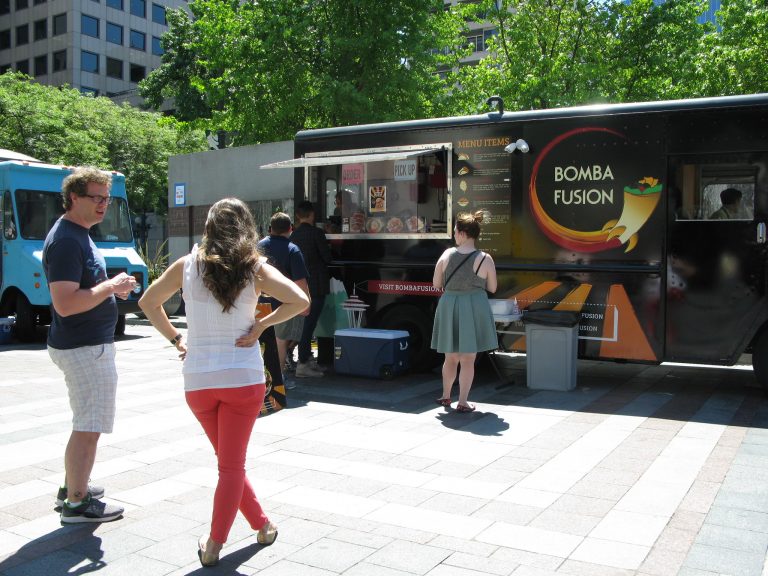Published on March 31, 2021

Originally published by UW Bothell.
Nearly everyone who has undertaken a heavy-duty cleaning job with a concentrated chemical has likely gasped for air. Your nose, throat and eyes irritated, you realize why product labels recommend ample ventilation and wonder if you might be doing something wrong.
A common and potentially fatal mistake is mixing ammonia and bleach, which produces a deadly gas. “It happens more frequently than you think, especially in our homes,” said Grace Lasker, teaching professor in the University of Washington Bothell’s School of Nursing & Health Studies.
Harsh cleaners also impact the environment when they go down the drain, she said. But while cleanliness is critical, many people don’t realize there are alternative chemicals that are healthier for workers and the planet.
To bring attention to effective alternatives, experts from the University of Washington, a state agency and a nonprofit formed a team to identify and promote safer cleaning methods, starting with food trucks.
Why food trucks? Imagine how difficult it must be for the operators, working in confined spaces and now cleaning more often because of the coronavirus pandemic. Food trucks also are a small business for some immigrant entrepreneurs who could use help meeting health and safety regulations.
The team received an EarthLab grant to create a toolkit of resources called Clean SHiFT (Safety & Health in Food Trucks). EarthLab is a UW initiative that connects the College of the Environment and other UW units in partnerships that take on environmental challenges. The Clean SHiFT project received $49,000 in a 2019-20 grant, which was extended into this year because of the pandemic. The toolkit officially launched this month, said Lasker, one of the project leaders.
Others who drove the shift to green cleaning are Nancy Simcox, assistant teaching professor in the UW Department of Environmental & Occupational Health Sciences; Saskia van Bergen, a chemist with the state Department of Ecology; and Aurora Martin, founder of PopUPJustice, a Seattle community-building nonprofit, and a faculty member at Heritage University on the Yakama Indian Reservation in eastern Washington.
Continue reading at University of Washington Bothell News.
Originally published by UW Bothell.